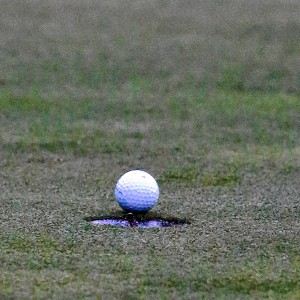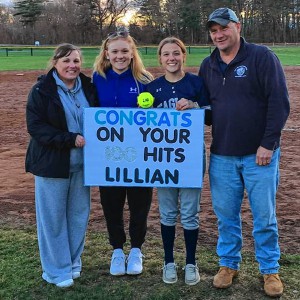On The Ridge: Don’t feed the animals
| Published: 03-01-2023 3:22 PM |
As February leaves us, and March comes in with plenty of snow still on the ground (and more being predicted), it’s important to resist the urge to feed wildlife, especially species such as whitetail deer and wild turkeys. Granted, winter is hard for both — as it is for coyote, fox, bobcat, and other animals — to search for, and find, food... plant or animal. Even birds of prey have a hard time hunting small rodents underneath the ice and snow. But providing supplemental food for wildlife is simply not in their best interests because it disrupts their natural behavior, which is to utilize their body fat and feed on whatever becomes available to them, or what they can find or catch.
It can also explain why wildlife sometimes turn up in areas where they don’t normally frequent, during times of the day when they aren’t usually active. When this happens, it means they’re hungry and looking for food in marginal areas where they may not typically congregate. But these difficulties that wild animals always face, especially in late winter months, doesn’t mean that we should be feeding them. Animals can lose their fear of people quicker than you might think, especially when they’re dealing with hunger. If they become too comfortable around populated areas, even in a rural setting, they can become a nuisance, or worse yet a safety risk (becoming more aggressive), including the transmission of many different diseases.
Let me just say that feeding bird food like suet and sunflower seed on your own property to wild birds like cardinals, chickadees, juncos, woodpeckers, etc. is generally harmless. And native trees, shrubs, and the protection of natural habitats can easily help in creating a “wild bird or wildlife friendly” habitat. Just be mindful that bears will be waking up soon, so pay attention and get those feeders down when you know you should!
But right now, we’re focusing on feeding wildlife in the winter, particularly food that does not provide appropriate nutrition and could very easily contribute to health problems, which is something that no one wants. Even offering pellets and cracked corn can attract more things than you might want in one place, contributing to the spread of disease while causing nutritional and protein problems, increased parasites, bacterial infections, problems with feathers and fur, obesity, unwanted predators, and even luring wildlife to crossroads – that could easily lead to major problems and concerns.
And while we continually empathize with all New England wildlife on severely cold, wintry days, they generally have access to the foods they need, and can usually find open water somewhere. It is, after all, the cycle of life in the wild, which is the survival of the fittest in the harshest of weather. And the best practice for us is to step back and allow the animals’ instincts to take over. Supplemental feeding can alter that behavior and have detrimental, and sometimes fatal, effects instead of just allowing wildlife to adapt, as they have for thousands of years, and cope with harsh winter weather that includes deep snow, cold temperatures, high winds, and late winter onslaughts like we’re experiencing right now.
And as winter continues to stretch for spring, here’s a couple of fun events you might want to take in during the month of March:
March 5: Turkey Calling Seminar, Westborough – MassWildlife and the National Wild Turkey Federation (NWTF) will be hosting a three-hour class to learn all about turkey hunting! This course will cover turkey hunting tips and tricks from turkey hunting experts and give you an opportunity to practice your calls under the guidance of experienced turkey callers. The class will be held prior to the NWTF’s turkey calling championships and all participants are welcome to stay for the contest. The seminars will be held at MassWildlife’s Field Headquarters (1 Rabbit Hill Road) in Westborough from 9 a.m.-noon.
March 15: The Shelburne Grange, located at 17 Little Mohawk Rd. in Shelburne Center, will be hosting a FREE program featuring National Wild Turkey Federation biologist Matt DiBona for a discussion about the efforts to restore wild turkeys in Massachusetts and the opportunities for managing wildlife habitats, starting at 7:00pm. Matt’s work is focused on creating habitat projects that benefit the wild turkey along with all species of wildlife. Matt will also explain how other wildlife that share the woods with the wild turkey, and how managing for healthy forests, can help create important habitat helping both our forests and the wildlife prepare for the challenges of a changing climate. Before joining the NWTF, Matt was the Waterfowl and Upland Game Biologist for the Delaware Fish and Wildlife. Matt lives in Belchertown with his family and enjoys hiking, hunting, fishing, and birdwatching.
Joe Judd is a lifelong hunter and sportsman. He is an outdoor writer, seminar speaker, member of the New England Outdoor Writers Association, and a 2019 inductee into the N.E. Turkey Hunting Hall of Fame. Joe is also on the Quaker Boy Game Calls and Bass Pro Shops/Cabela’s Pro-Staff.
 Greenfield man arrested in New York on murder charge
Greenfield man arrested in New York on murder charge Former Leyden police chief Daniel Galvis charged with larceny
Former Leyden police chief Daniel Galvis charged with larceny Judge dismisses case against former Buckland police chief
Judge dismisses case against former Buckland police chief Greenfield Police Logs: April 9 to April 17, 2024
Greenfield Police Logs: April 9 to April 17, 2024 Millers Meadow idea would ‘completely transform’ Colrain Street lot in Greenfield
Millers Meadow idea would ‘completely transform’ Colrain Street lot in Greenfield Greenfield’s Court Square to remain open year-round for first time since 2021
Greenfield’s Court Square to remain open year-round for first time since 2021 Country Club of Greenfield holding Youth Golf Camp June 24-27
Country Club of Greenfield holding Youth Golf Camp June 24-27 High schools: Lilly Ross records 100th career hit in Franklin Tech’s win over Northampton
High schools: Lilly Ross records 100th career hit in Franklin Tech’s win over Northampton Baseball: Wyatt Edes’ walk-off single lifts Frontier past Amherst 6-5
Baseball: Wyatt Edes’ walk-off single lifts Frontier past Amherst 6-5 On The Ridge with Joe Judd: What time should you turkey hunt?
On The Ridge with Joe Judd: What time should you turkey hunt?
